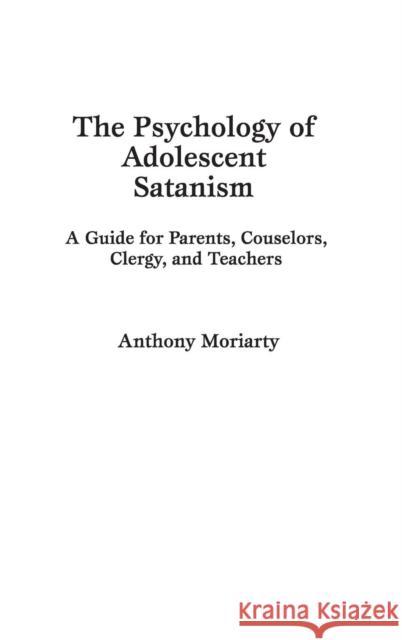The Psychology of Adolescent Satanism: A Guide for Parents, Counselors, Clergy, and Teachers » książka
The Psychology of Adolescent Satanism: A Guide for Parents, Counselors, Clergy, and Teachers
ISBN-13: 9780275943073 / Angielski / Twarda / 1992 / 168 str.
This book addresses the problems of adolescent Satanism from a psychological viewpoint. It includes the developmental dynamics that underlie four different types of young people who become involved in Satanism and provides an analysis of risk factors. The author critically evaluates the philosophy of Satanism through a review of The Satanic Bible, and further appraises the causes of Satanism by examining the roles of power, ritual, and dualistic thinking in young people's lives. In addition, Moriarty evaluates how communication patterns and parenting styles impact on a young person's vulnerability to become involved in Satanism. This is also the first book to describe the relationship between Satanism and suicide. Finally, it closes with ten practical suggestions for parents and others that will lead to effective prevention.
Six major conclusions challenge a number of prevailing myths: --Satanic beliefs and philosophy should be made known to everyone, therefore destroying the claim to be occult, or hidden. --There is no single type of personality drawn to Satanism, as commonly suggested by law enforcement. Four types are identified by the author. --Satanism must be viewed as a developmental process to be properly understood. --People often contribute to an individual's vulnerability to Satanism by how they relate to children and adolescents. --There is a significant relationship between suicide and Satanism that needs to be addressed in dealing with young people. --Adolescent Satanism is a problem that is largely preventable if certain guidelines are followed. This volume is intended for a wide audience, including parents, teachers, clergy, counselors, and other mental health professionals, and is a valuable resource for law enforcement personnel.











